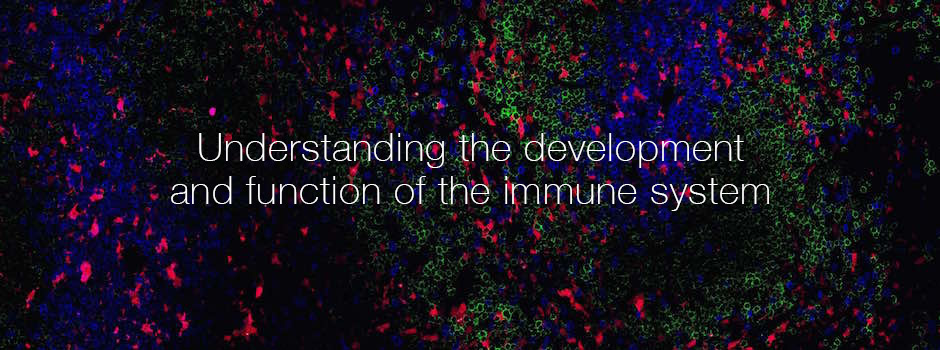We are recruiting a postdoctoral fellow to work on mechanisms of systemic immune suppression during pregnancy and their application to the treatment of type 1 diabetes
The immune system comprises hundreds of specialized cell types that collectively protect us from pathogens while tolerating our own body. We are interested in the process whereby this amazing diversity is generated from a single source, the hematopoietic stem cell (HSC). We are applying genetic tools to understand normal HSC function and its subversion during malignant transformation leading to leukemia. Among the immune cell types we are focusing on dendritic cells, the key sentinels that detect pathogens and orchestrate immune responses. One of our favorites is the plasmacytoid dendritic cell– an antiviral defense specialist whose aberrant activation may facilitate inflammation and autoimmunity. Finally, we study autoimmune diseases such as systemic lupus erythematosus (SLE), in which the immune system attacks the body's own nucleic acids. Our studies are focused on the natural mechanisms that maintain tolerance to DNA, their role in SLE and their potential therapeutic applications.

